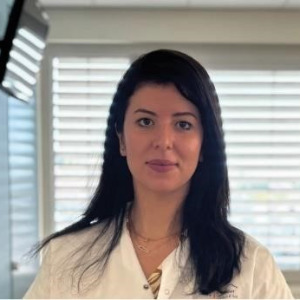Gastrointestinal Cancers
Gastrointestinal Cancers, including those of the esophagus, stomach, liver, pancreas, and colorectal regions, pose significant clinical challenges due to their heterogeneity and often late-stage diagnosis. Gastrointestinal Cancers require a multidisciplinary, patient-centered approach that integrates early detection, accurate staging, and tailored therapeutic strategies. Advances in imaging, endoscopic evaluation, and molecular profiling have improved the ability to identify high-risk lesions and characterize tumor biology. Treatment typically combines surgery, chemotherapy, targeted therapy, immunotherapy, and supportive care to maximize survival outcomes while minimizing toxicity. Collaboration among surgeons, medical oncologists, radiologists, nutritionists, and supportive care specialists ensures comprehensive care addressing both physical and psychosocial patient needs.
The management of Gastrointestinal Cancers is increasingly guided by precision medicine and ongoing translational research. Molecular and genomic profiling enables clinicians to select the most effective therapies and predict patient responses, while neoadjuvant and adjuvant strategies improve surgical success and reduce recurrence. Emerging combination regimens and clinical trials continue to expand treatment options for advanced disease. Survivorship programs, nutritional counseling, and symptom management are integral for maintaining long-term quality of life. By combining multidisciplinary expertise, innovative treatment approaches, and personalized care, gastrointestinal oncology is evolving toward more adaptive, effective, and patient-focused strategies that enhance survival and overall well-being for patients worldwide.

Rajvir Dahiya
University of California San Francisco, United States
Atif A Ahmed
University of Washington-Seattle Children’s Hospital, United States
Thomas J Webster
Northeastern University, United States
Paulo Cesar De Morais
Catholic University of Brasilia, Brazil
Allen Chen
Olympic Medical Center, United States
Shilpa S Dhar
UT MD Anderson Cancer Center, United States



Title : A novel blood-based mRNA genomics technology for cancer diagnosis and treatment
Rajvir Dahiya, University of California San Francisco, United States
Title : Nanomedicine in humans: 30 years of fighting diseases
Thomas J Webster, Northeastern University, United States
Title : Diagnosis and treatment of primary cardiac lymphoma in an immunocompetent 27-year-old man
Moataz Taha Mahmoud Abdelsalam, Madinah Cardiac Center, Saudi Arabia
Title : tRNA-derived fragment 3′tRF-AlaAGC modulates cell chemoresistance and M2 macrophage polarization via binding to TRADD in breast cancer
Feng Yan, The Affiliated Cancer Hospital of Nanjing Medical University, China
Title : Multiplexed biosensor detection of cancer biomarkers
Michael Thompson, University of Toronto, Canada
Title : Personalized and Precision Medicine (PPM) through the view of biodesign-inspired translational research: An option for clinical oncologists, caregivers, and consumers to realize the potential of genomics-informed care to secure human biosafety
Sergey Suchkov, N.D. Zelinskii Institute for Organic Chemistry of the Russian Academy of Sciences, Russian Federation